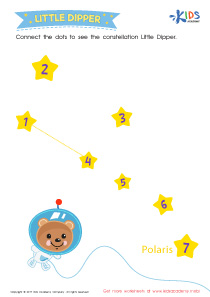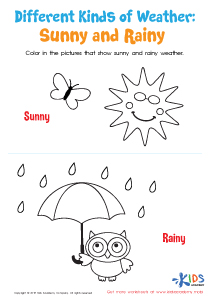Foundational Reading Lessons | Literature, Preschool
0 results
Our fascinating Literature Lessons for Preschoolers will develop your child's passion for reading and love for books. These interactive and engaging lessons are suitable for children aged three to five. We make learning fun by incorporating age-appropriate, interactive worksheets, educational videos, and assessment quizzes that help your child develop their reading comprehension skills. Our experienced teachers use classic and modern stories to inspire creativity, sharpen analytical and critical thinking skills, and build a solid foundation for life-long learning. Your child will be equipped with the tools to read independently and achieve academic success. Give your child the gift of a love for literature with our Literature Lessons for Preschoolers.
The importance of literature in early childhood education cannot be overstated. Literature lessons at the preschool level are essential to helping children acquire essential knowledge and skills to become successful learners. With the use of interactive worksheets, educational videos, and assessment quizzes, such classes can incur lifelong benefits in the children’s future academic pursuits.
Literature lessons in preschool serve as the foundation for developing language, early reading, and writing skills. By introducing children to storybooks, children learn new words, sentence structures, and how to develop narratives. Consequently, this can help develop their language and communication skills, which are essential for their social, emotional, and academic development.
Through the use of interactive worksheets, literature lessons can help children improve their cognitive and critical thinking skills. Worksheets help children identify letters, shapes, colors, and other elements of a story. The exercises can help children acquire cognitive skills such as identifying patterns, classifying, counting, and comparing. Through reading comprehension worksheets, children develop critical thinking skills that help them understand the intent of the author and analyze stories better, enhancing the student's ability to ask questions and make logical conclusions.
The use of educational videos can be quite appealing to children, promoting enthusiasm and eagerness to learn. Short clips can be paired with books highlighting the characters and themes, making stories come alive. Videos can hold the attention of the children, sparking a genuine fascination with the literature. It can be useful in introducing a new concept or idea and get children excited about what they are reading. Kids learn skills such as prediction, context understanding, and sequencing by watching videos. It can also help kids relate to characters and understanding underlying themes.
Assessment quizzes play a crucial role in evaluating children's learning progress. Assessment is necessary because it helps identify areas where children need extra help and where they excel. With quizzes, instructors can evaluate their teaching methodologies and tweak them if necessary, continually improving the quality of education children receive. Feedback from quizzes helps children understand their progress and helps instructors know where to focus.
In conclusion, Literature lessons in preschool serve as a foundation for children's future academic success. It helps develop the necessary skills to excel in their learning pursuits. With interactive worksheets, educational videos, and assessment quizzes, children can acquire difficult skills such as cognitive and critical thinking skills. Children are exposed to new ideas and thoughts out of their past experiences, which can be useful in shaping their worldviews. With such benefits to educational growth, there is no doubt that literature lessons are essential in early childhood education.














